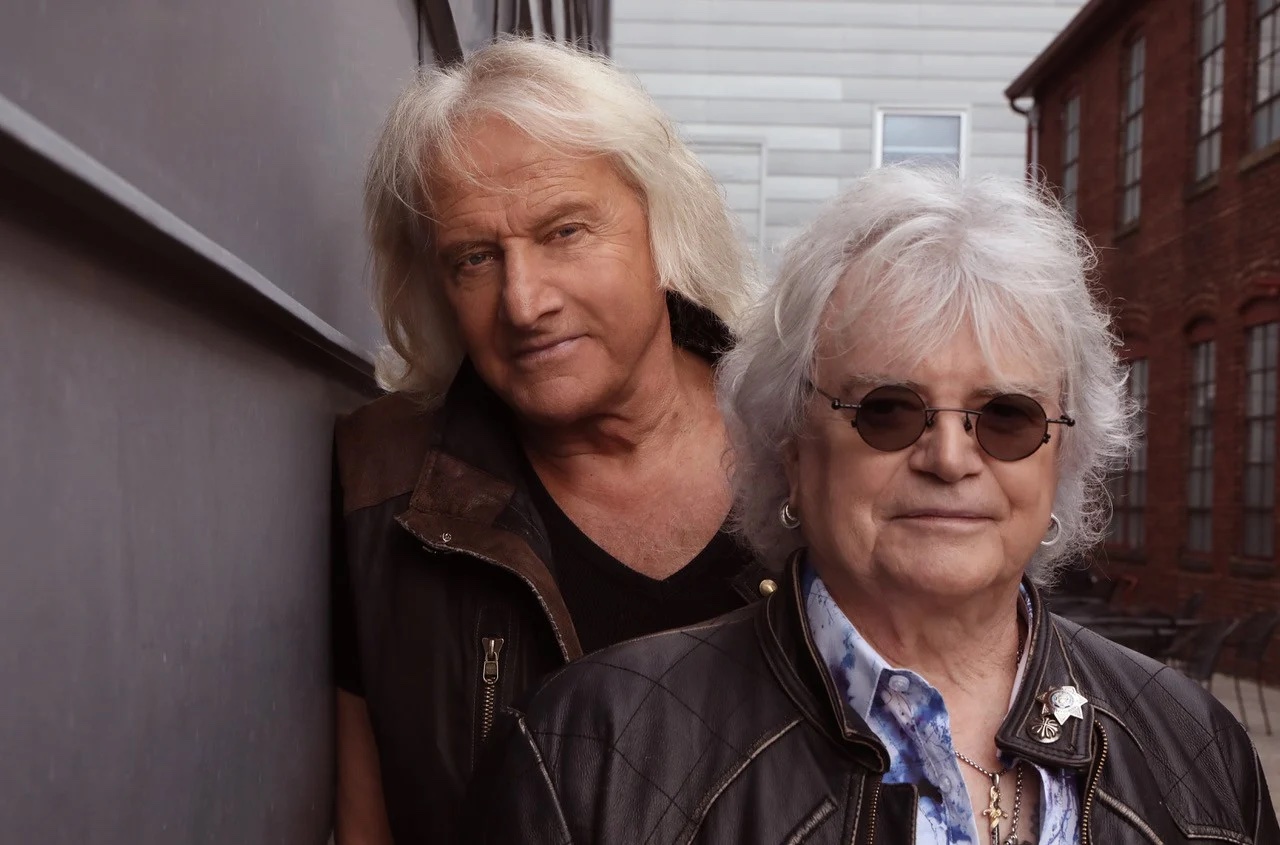Air Supply’s Graham Russell on the rock duo’s longevity ahead of Lawrence gig

Via ThePitchKC.com
Alongside Russell Hitchock, as one half of long-running rock duo Air Supply, Graham Russell is responsible for some of the most recognizably-beautiful songs in the pantheon of popular music. Air Supply’s string of eight top five hits from 1979 to 1983–“Lost in Love,” “All Out of Love,” “Every Woman in the World,” “The One That You Love,” “Here I Am,” “Sweet Dreams,” “Even the Nights Are Better,” and “Making Love Out of Nothing at All”–are still radio staples over 40 years later, and continue to find their way into film and TV placements to this day.
Thanks to tuneful musicianship and gorgeous harmonies, Air Supply’s songs hook their way into you head and remain there for life. Whether you’re a metalhead or jazz aficionado, you can definitely hum the hook to at least one song from their catalog without breaking the slightest mental sweat.
The duo comes to the Lied Center in Lawrence on Wednesday, October 4 [details here] and we took the opportunity to speak with Air Supply’s Graham Russell by phone ahead of their stop.
The Pitch: You and Russell Hitchcock met as performers in Jesus Christ Superstar and then started writing your own songs. What it’s like to go from singing someone else’s songs to writing your own songs to then getting so big that other people want you to perform their songs?
Well, it’s kind of it’s like a full circle thing. I mean, being in Superstar was my first real professional occupation. I always wanted to be in show business and I’ve been writing songs since I was 13 years old, but I really had no direction or no idea what I was doing. When I went into Superstar, it was such a great opportunity. It was great for me on a personal level because I got to sing some of the greatest music ever. I think we did over like 500 shows. Playing so many shows, you really get inside the music and I kind of got a grip of how he did everything and what he was thinking, in my own way.
I met Russell on the first day, believe it or not. It was like a switch went off that said to me, “Okay, you’ve got the whole run of this show to get something together. You’ve got a step up now because you’re in Superstar. You’ve got 8 months to really put something together with your own music,” and so I looked at it as like an opportunity because I knew the show wouldn’t last forever and I wanted to make the most of it.
Russell and I made plans to do something straight away within a few days. I’ve always wanted to play my own songs. I’d been in different bands when I was a teenager in England and I never fitted. It just wasn’t right for me. I didn’t like doing cover songs all the time, which most bands then were doing to earn a living and just to play, but it was never right for me.
I always felt, “I can’t join somebody else’s band. I’ve got to start my own. That’s the only way I’m going to have a shot at having any success,” and when I met Russell, that really stood out to me. I’d think, “Yeah, this is it. We can do this,” and that’s what we tried to do from the very beginning.
It’s so appropriate you started out in this big rock musical because then later on, performing songs that were written by Jim Steinman just seems to fit hand-in-glove.
Oh, absolutely. Well, the thing was, we had so much success. Even when we came out of Superstar, we have the number one album and single in Australia and nobody knew who we were. We were still in the show. Suddenly, there’s this group all over the radio in Australia and nobody knew who they were. But it was us. We left Superstar Saturday. On Monday, we started our own touring and so we had a big leg up with that.
After we had success in the US–which really is worldwide. If you have a success in North America, then everybody was coming to us and Jim Steinman was one of those. He says, “Oh, do you want to record this song?”
The thing is this: even though I’m a very successful songwriter, I think it’s great for Russell to sing other songs too. He doesn’t just want to sing my songs. I mean, he would, but I think he should have a broad spectrum and sing other great songs. We recorded “The Power of Love.” We were actually the first to record that song.
Then Jim came with “Making Love Out of Nothing at All” and it was just perfect for us. It was perfect for Russell to sing, for him to let people know he’s not just the singer in a band. He’s one of the greatest singers of our generation. I think it was very important for him to sing those songs instead of just singing my songs all the time, which he’s done for almost 50 years.
After coming out of Superstar, you opened for Rod Stewart. When you’re performing with with Rod Stewart, does that teach you something about stagecraft in a different manner?
Yes, it is stagecraft. You’re absolutely right. That’s what I was looking for. But at the same time, we learned so many other things that you can only learn through experience and you can’t read it in a book or anything.
We learned about respect, being on time–but respect for everyone, like the drum techs. We got to know Rod quite well and his band, and they were just incredible. They were all top notch musicians, you know. Carmine Appice was on drums, he’s super famous, and we became really good friends, and they were teaching us without realizing it, and they were saying, “Now you do this, and you do that,” and so in the end, we learned so much, it was kind of this massive crriculum that we discovered, so we felt that something was going on.
Why were we suddenly thrown to the wolves like this to learn everything? And then, of course, in 1980, we realized, “Oh, wow, here it is. It’s happening now.” We were ready for it, but there’s so much that we had to learn, that we needed to learn, because we were really young.
Well, we weren’t that young. We were 25 and 26, which actually is late to come into any success. But we were very grounded and we thought, “Okay, this opportunity presented itself in 1980 when ‘Lost in Love’ came along and took the world by storm,” but we didn’t want to be, first of all, a one-hit wonder. We wanted a career and and that’s what we got, but we worked for it.
We have the songs and we have Russell’s incredible voice. I’d only had four years experience at that point, but we didn’t waste anything. We realized that we needed to work if we’re going to have a career for a long time, which, of course, we have had so far, you know?
What’s sort of fascinating about bands that have had long careers is the way that your songs start to become shorthand for certain things. You’ve had your songs featured in hundreds of films and TV shows. What is it like for you to have these songs that you wrote used to soundtrack someone else’s vision?
It’s really cool. It’s a great feeling, for several reasons. Take “All Out of Love,” for instance, which has been in dozens of movies. Every time people pick it to be in a movie, our manager will call us and say, “Oh, ‘All Out of Love’ is going in there,” and I go, “Wow, that’s amazing.”
The song’s 40 years old but it spans generations because of its simplicity and its message, I think. It’s a great feeling. It really is because Russ and I think, “God, you know, we recorded this in 1978, and here it is, and it’s in another movie, and the movie’s the number one movie in the world”
It’s really, it’s really strange, but at the same time, I think those songs, and songs like that, become the soundtrack to everybody’s lives and it keeps us as a band so relevant because people hear it. I mean, younger generations hear that song or songs like that in the movies and then they go, “Oh, who’s that?That’s Air Supply? Who are they? Oh, I’m going to find out,” and when we come to their city, they come and see us and once they see us, they want to see us again.
It’s kind of this cyclic thing, but the songs in movies and TV shows and commercials keep us relevant and they keep us in the public eye, when in fact, throughout our career, we’ve always been the opposite. We’ve always wanted the music to speak for itself. We’ve never been the opposite, on the front pages of all the magazines in people and stuff like that. We really chose to be low profile and let the music speak.
Of course, the music does speak for us now and it keeps us there. It keeps us relevant. We get so many young kids at our shows and sometimes I’ll say, “I want you to come back with your parents,” and they come back and I say, “How come you’re at our show? You’re 11 years old and you know all the words to every song,” and they go, “Wow, they just love you guys and they listen to you all the time.”
Of course, our music isn’t for everyone, but the people that do follow us, they follow us forever and they keep coming to the shows and Russell and I are perplexed. We go, “Oh my God, it’s amazing,” and we go, “Yeah, I know,” but we really don’t know any more than what I’ve just said of why it happens. You know, it’s bizarre, but it’s a beautiful thing too.


